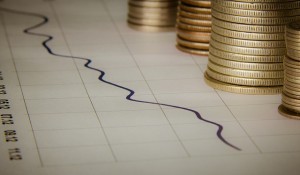Bard MBA News
Pitfalls in Measuring Corporate Sustainability
By BARD CEPBy Amy Kalafa originally published January 21st, 2015 on www.TriplePundit.com
 Are you one of those people who gets excited when the price of a Tesla becomes almost affordable, or when you can buy a toothbrush made from recycled plastic, or a lipstick certified cruelty-free? If so, then you may be glad to know that there are a whole host of tools in the business world that give companies a way to report on their corporate sustainability practices.
Are you one of those people who gets excited when the price of a Tesla becomes almost affordable, or when you can buy a toothbrush made from recycled plastic, or a lipstick certified cruelty-free? If so, then you may be glad to know that there are a whole host of tools in the business world that give companies a way to report on their corporate sustainability practices.
Business directors are fond of the phrase, “What gets measured gets managed.” According to a 2013 report by KPMG, 86 percent of large American companies use some form of sustainability reporting, up from 74 percent in 2008.
To date, all sustainability reporting in the U.S is voluntary self-reporting, but a growing number of indexed stock portfolios are based on corporate environmental and social governance (ESG) metrics. Firms like MSCI and ENSOGO scrutinize report contents and provide detailed evaluations to stock analysts, and companies that don’t file a corporate sustainability report are now perceived as laggards in corporate citizenship.
The Dow Jones Stock Exchange even has its own index — the Dow Jones Sustainability Index (DJSI) — for publicly-traded companies.
The field of sustainability reporting is still a bit of a minefield, however, stewing in an alphabet soup of acronyms. Analysts struggle to standardize metrics and measurements. Reports may not be comparable from year to year, as the frameworks for measurement continue to evolve. Worse yet, companies are free to define their boundaries in whatever terms they choose. Some will interpret boundaries in the broadest sense, reporting on the environmental impact of all of their suppliers (Walmart, for example, asks each of its suppliers to file a sustainability report), as well as the impact of their products once they’ve been purchased and used by consumers. Others ignore these factors and only report on their corporate offices or factory floor.
A close examination of a number of reports reveals that some are difficult to distinguish from a company’s regular annual report to stockholders. Accomplishments in energy conservation and public relations are highlighted while indirect costs such as water pollution, carbon emissions, and other health and social impacts are glossed over. Some reports seem to be based on a loose definition of sustainability that refers only to the financial sustainability of the company.
Globally, Brazil, Denmark, France and South Africa now require companies to file sustainability reports. Shareholders, analysts and investors are also putting on the pressure by requesting disclosure on matters of corporate sustainability. This phenomenon is certainly having an impact on business performance, with those companies that do file reports performing significantly better in the markets than their non-reporting peers.
Even for smaller companies that can’t afford to hire consultants and purchase software, self-reporting raises issues and awareness about which sustainability aspects are most relevant to the business. The process obliges managers and directors to acknowledge the cost of depleting natural capital and damaging the environment whether directly through pollution or indirectly through energy consumption, waste and employment practices. According to a report by Ernst and Young, sustainability reporting gives companies a better reputation, meets the expectations of employees, improves access to capital and increases efficiency and waste reduction.
Most companies that make the commitment to report use some version of the Global Reporting Initiative (GRI) standards. These standards guide a company through a comprehensive sustainability audit, with sections on human rights and resources, environmental impact, and consumption of natural resources, as well as fossil fuel. In addition to a numerical rating system, GRI requires a narrative approach. As a result the reports can run over 100 pages. Datamaran, Governance and Accountability Institute and RobecoSAM are among the new businesses that are crunching data and developing software to simplify the process of sustainability reporting.
Another framework in development, the Sustainability Accounting Standards Board (SASB) may ultimately displace GRI. SASB aims to disclose the risks that sustainability issues have on a company’s financial bottom line. Its goal is to integrate sustainability measurements into the annual 10-K reports required by the Securities and Exchange Commission (SEC) for all public companies in the U.S. If SASB can succeed in demonstrating that sustainability issues would materially affect a ‘reasonable’ investor’s assessment of a company, it could come to be required by the Securities and Exchange Commission. For the first time in the U.S., sustainability reporting would be mandatory.
Though all the acronyms are still baffling, with an environmental crisis looming –and consumers, investors and other stakeholders demanding corporate accountability — we can bet that sustainability reporting will soon become a big business in its own right. As that happens, the demands of the marketplace will vie with regulatory frameworks to determine which metrics and standards will become the norm.
Image credit: Flickr/teegardin
Amy Kalafa is a TV producer, filmmaker, author and current student at Bard MBA in Sustainability. Her work in the fields of sustainable food, clean energy and mental health has earned international recognition and awards.
Posted on 21 January 2015 | 1:24 pm
